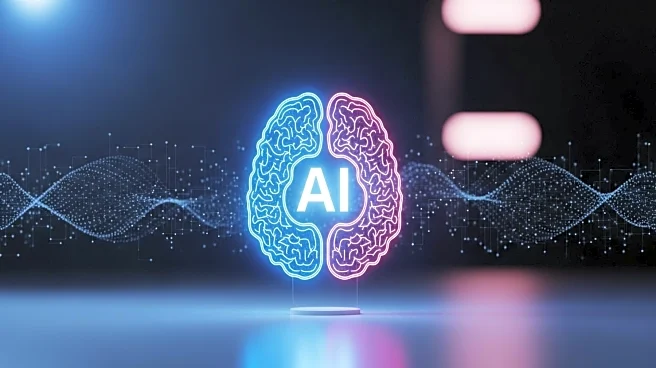What's Happening?
Artificial intelligence (AI) is significantly transforming breast cancer research and care, as highlighted in a recent collection of studies. The advancements in machine learning, deep learning, and generative modeling are paving the way for new methodologies in early detection, accurate diagnosis, risk prediction, and personalized treatment of breast cancer. The integration of AI into healthcare systems, however, necessitates a focus on transparency, reproducibility, bias, and equity. The collection invites contributions that explore methodological innovations, clinical evaluations, and the practical application of AI systems. Key areas of focus include AI applications in imaging and diagnosis, computational pathology, genomics, prediction and prognosis models, and therapy planning and monitoring. The collection aims to showcase cutting-edge applications and evaluate the methodological rigor of AI in enhancing patient outcomes while ensuring safety and equity.
Why It's Important?
The integration of AI in breast cancer research and care holds the potential to revolutionize the field by improving early detection and treatment outcomes. AI's ability to analyze vast amounts of data quickly and accurately can lead to more precise diagnoses and personalized treatment plans, ultimately improving patient survival rates. However, the implementation of AI in healthcare must address challenges related to bias, transparency, and equity to ensure that these technologies benefit all patients equally. The focus on trustworthy AI, including interpretability, explainability, and regulatory compliance, is crucial for gaining the trust of healthcare providers and patients. The successful integration of AI could lead to more efficient healthcare systems, reduced costs, and better patient care.
What's Next?
The next steps involve further research and development to refine AI technologies for breast cancer care. This includes conducting prospective validation studies, cost-effectiveness analyses, and case studies of clinical deployment. Collaboration among computer scientists, engineers, clinicians, and ethicists is essential to advance the responsible development and implementation of AI. The collection encourages interdisciplinary work to stimulate knowledge exchange and foster collaborations that accelerate the translation of AI innovations into clinical practice. As AI continues to evolve, ongoing evaluation of its impact on healthcare systems and patient outcomes will be necessary to ensure its benefits are maximized.
Beyond the Headlines
The ethical and legal implications of AI in healthcare are significant, as these technologies must be developed and implemented in ways that protect patient privacy and data security. Additionally, the cultural shift towards AI-driven healthcare requires education and training for healthcare providers to effectively use these tools. Long-term, AI could lead to a more personalized approach to medicine, where treatments are tailored to individual genetic profiles and health histories, potentially transforming the standard of care in oncology.










